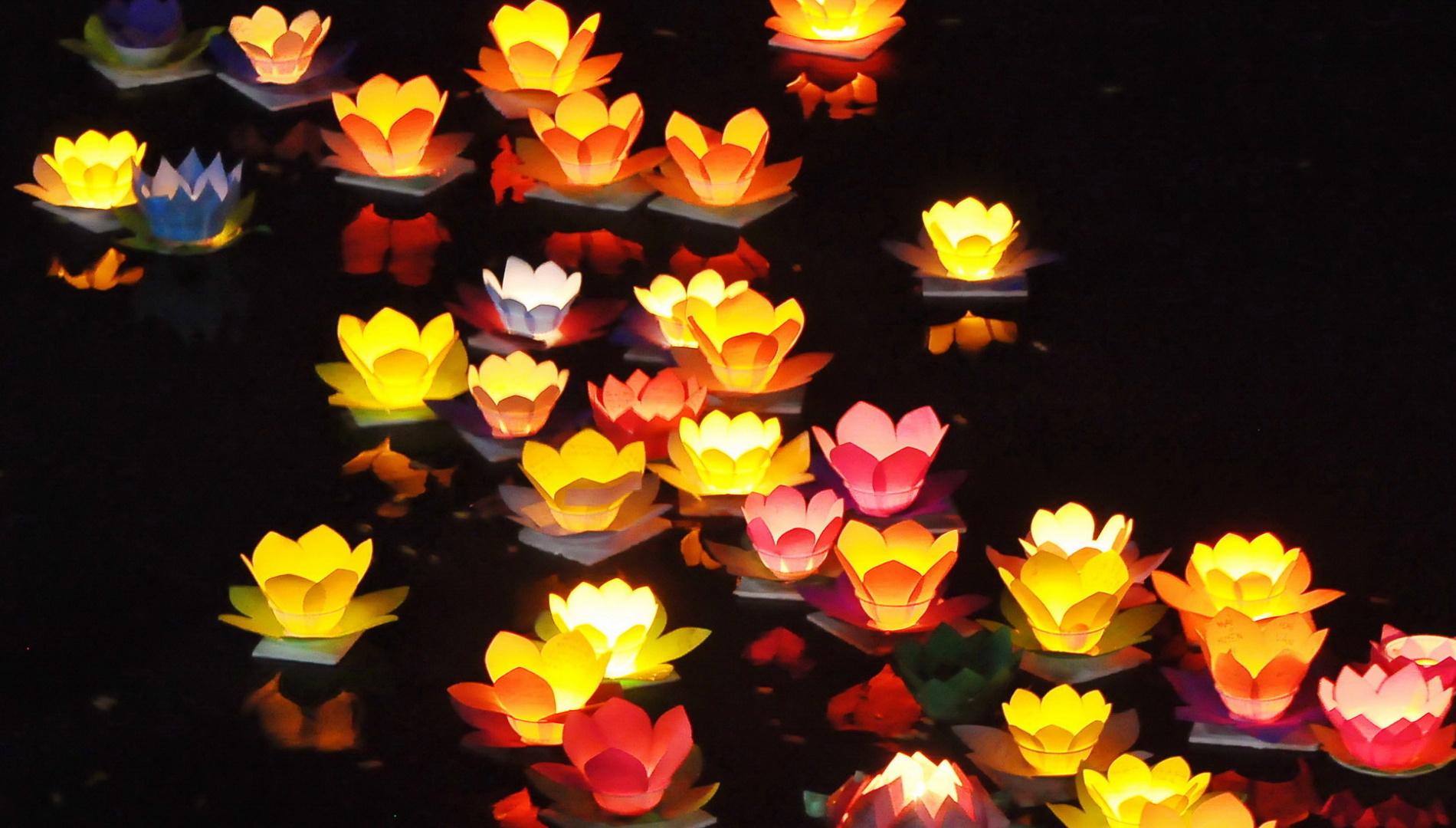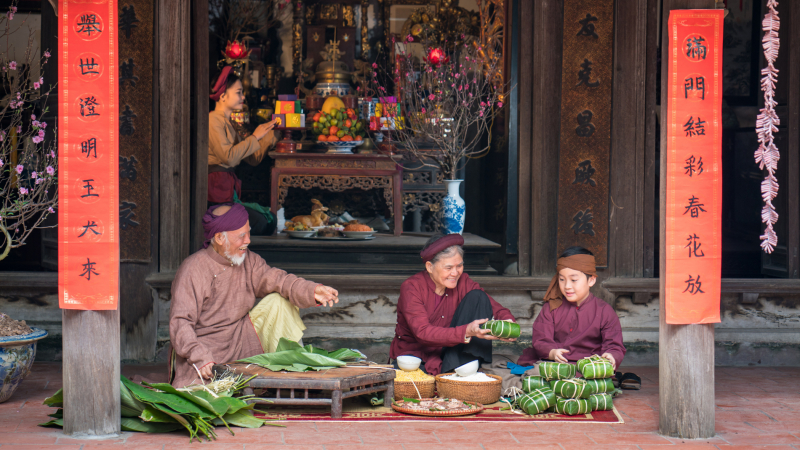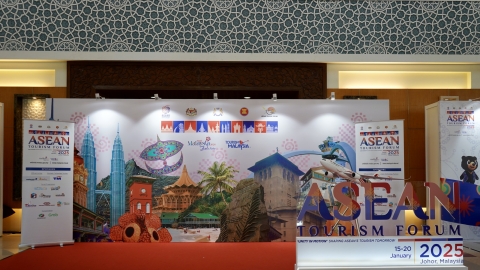The biggest holiday for Vietnamese people.
In the diverse and rich cultural landscape of East Asian countries, the Lunar New Year (Tet) is always considered one of the most important festivals, deeply rooted in spiritual and traditional cultural values. It's not only a time for family reunions and celebrations, but also marks a significant turning point in the cycle of the universe, and the beginning of a new year filled with hope and good wishes.
The Lantern Festival, also known as the first full moon of the lunar new year, is a celebration of the first full moon of the year. According to ancient beliefs, the full moon symbolizes completeness and fulfillment, representing happiness, good fortune, and prosperity. On the night of the first full moon, lanterns of countless shapes and colors illuminate the surroundings. People gather to watch lion dances, traditional opera performances, and enjoy traditional dishes, creating a joyful and lively atmosphere.
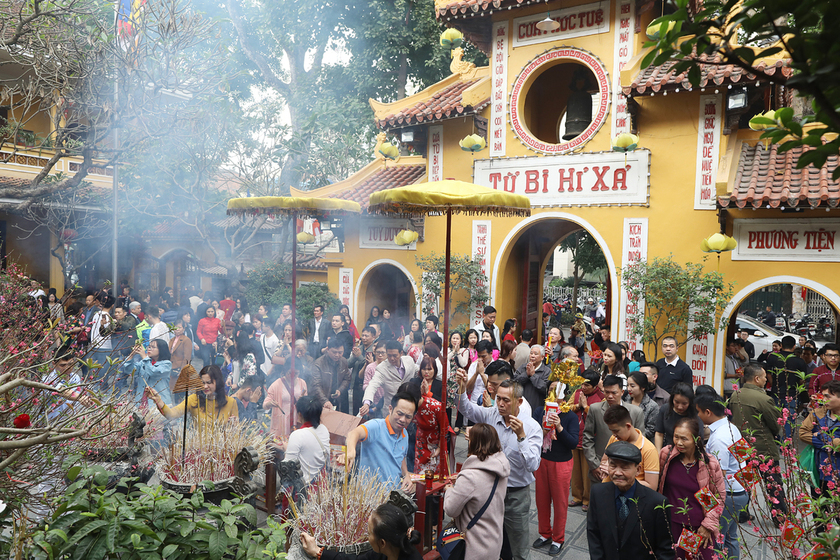
The Lantern Festival, also known as the Nguyên Tiêu Festival, Thượng Nguyên Festival, or Trạng Nguyên Festival, originates from China. Over time, it has incorporated elements of East Asian culture, leading to various explanations for its origins.
In the rich spiritual and cultural landscape of Vietnam, the full moon of the first lunar month holds a profoundly special meaning. It is not only the first full moon of the new year, but also an occasion for everyone to reflect on noble and virtuous values, a time to express reverence and gratitude to the Buddha, ancestors, and the origins of the nation.
According to the Vietnam Institute of Buddhist Studies, the full moon day of the first lunar month is also known as the Great Assembly of the Holy Monks. On this day, the Buddha called upon his disciples to engage in worldly affairs to serve humanity, with the aim of bringing welfare to the masses and peace to mankind. This is a profound message about the spirit of engagement, commitment, and dedication of Buddhism, and also a reminder of each person's responsibility to the community and society.
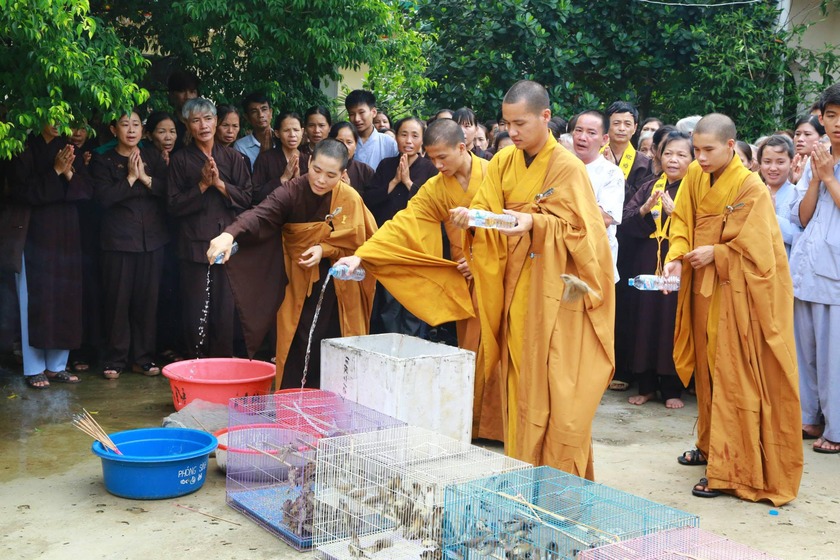
The Lantern Festival (Rằm tháng Giêng) takes place from midnight on the 14th (the night before the full moon) to the end of the 15th (the night of the full moon) of the first lunar month.
That's why in the past, our people had sayings like, "Praying to Buddha all year round is not as good as the full moon of the first lunar month" or "Eating vegetarian all year round is not as good as the full moon of the first lunar month." The Lantern Festival, the first bright moonlit night of a new spring cycle, shines brightly across the earth after a long, dark, and cold winter. According to feng shui experts, this night is a time of harmonious balance between yin and yang, full of auspicious energy, with the universe at its peak of prosperity. Trees and plants flourish, sprouting and blossoming, and all things coming to life. The peaceful full moon of the Lantern Festival, the gentle cool breeze, and the tranquil atmosphere uplift the spirits of poets, who are moved by the changing scenery and the fragrance of plants and flowers spreading throughout the land.
The Lantern Festival is a catalyst, a moment that inspires endless poetry. On this occasion, the emperors traditionally designated the Lantern Festival as an opportunity to summon the top scholars and those who had achieved high academic honors from across the country to the capital for a gathering and banquet in the Imperial Garden. In the past, at ancestral temples, the clan leaders would summon highly educated, knowledgeable, talented, and virtuous young men to report on their achievements over the past year to their ancestors. This served to showcase the prosperity of the clan and to educate future generations. Afterwards, the elders would admire the moon, hold poetry readings, or play traditional games like "to tom" or "tam cuc." After this day, they would often put away or burn these game sets to encourage their descendants to start the new year diligently, working hard and achieving success in their studies.
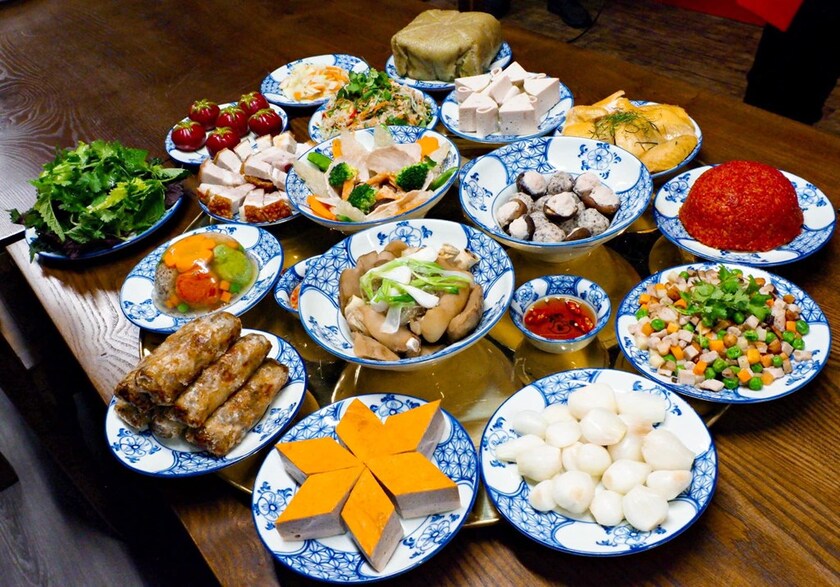
On this day, people usually prepare a full offering to express their gratitude.
For ordinary people, during the Lantern Festival, many places often hold village festivals with various folk activities, such as lantern lighting ceremonies, boat races, wrestling, and even dancing, singing, and offerings of lanterns...
Discussing the beauty of the Lantern Festival in Vietnamese culture, cultural researcher Hoang Tien Thang shared insightful perspectives on the origins and evolution of this festival throughout history. According to him, the Lantern Festival originated in China and spread, influencing many countries in Asia, including Vietnam. However, through cultural exchange, Vietnam and several other countries in the region have adopted and transformed the Lantern Festival in their own unique ways, reflecting the distinct cultural identity of each nation.
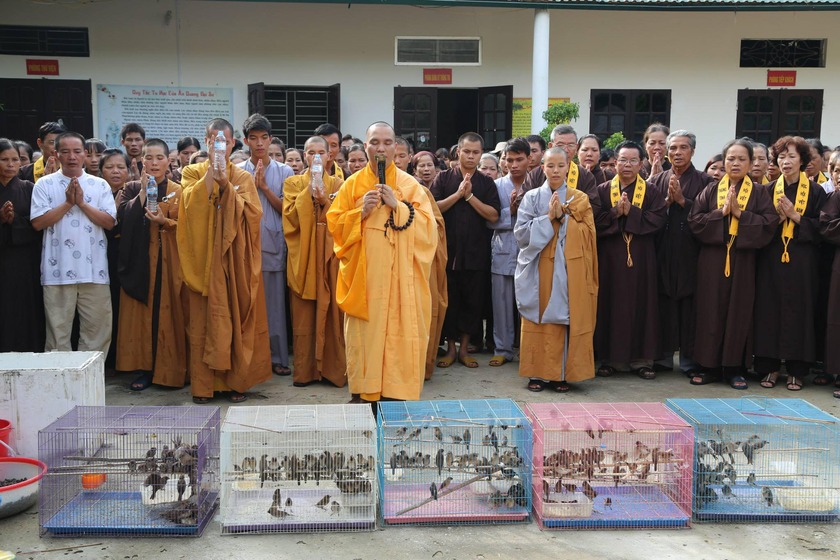
On this day, families will go to the temple together, prepare offerings to show their respect to Buddha and their ancestors, and pray for good fortune and blessings.
In the Vietnamese psyche, the full moon day of the first lunar month is not only an occasion to pray for oneself and family, but also an opportunity for each person to express gratitude to their ancestors, those who contributed to building and defending the nation.
Another humanistic value that the Lunar New Year's Full Moon ceremony has acquired through Vietnamization is the strong bond between family members. Standing before the ancestral altar, each person feels a sense of calm, remembering the merits of their parents and ancestors, and recalling their roots. This is an opportunity for each person to demonstrate their responsibility to their family and lineage, and also an opportunity to express their love and affection for their loved ones.
Preserving age-old cultural traditions.
History shows that, under the Nguyen Dynasty, the Lantern Festival (Luong Nguyen) was always highly valued and celebrated solemnly. Nguyen emperors often personally performed the rituals at temples and shrines, demonstrating respect for their ancestors and affirming national pride. Today, this custom has been simplified, but it retains its spiritual value and significance. It has become an occasion for people to look forward to a peaceful and prosperous future.
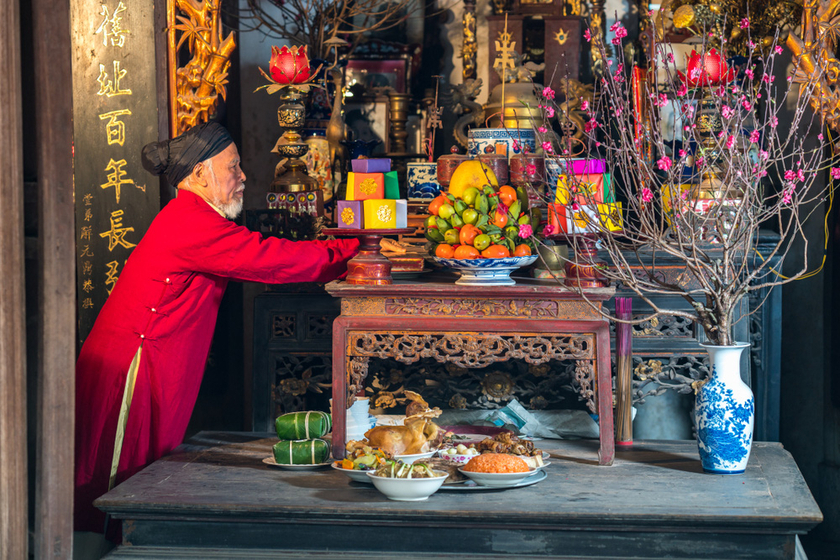
Cultural beauty passed down through generations.
Along with the long-preserved cultural traditions, the rituals on the Full Moon Day of the first lunar month have also gradually changed over time. Besides the positive traditional values that are being promoted, some undesirable phenomena have also emerged in religious activities, affecting the sacred meaning of the holiday.
Despite specific guidelines issued by government authorities and the Vietnam Buddhist Association, some religious establishments still exploit the pretext of praying for peace to organize rituals such as offering prayers to ward off bad luck and praying for the deceased for profit, distorting and misinterpreting the meaning of religious activities on the full moon day of the first lunar month. These actions not only detract from the serene beauty of the holiday but also create offensive images in the eyes of the public.
Dr. Nguyen Viet Chuc, a reputable cultural researcher, believes that the focus of the Lunar New Year's Full Moon Festival is the prayer for national peace and prosperity, for well-being, health, abundance, and development for the country and family. However, understanding and performing the rituals correctly largely depends on each individual's perception. Not everyone understands the profound meaning of the festival, leading to incorrect and offensive actions.
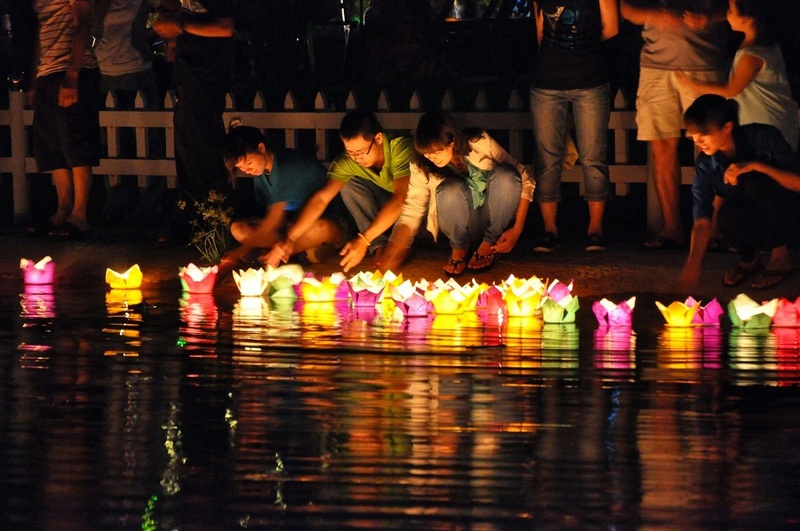
The offering ceremony on the 15th day of the first lunar month is an occasion for the family to express their reverence to their ancestors, thanking them for blessing the family and descendants with good health and prosperity throughout the year.
The excessive burning of votive paper, causing waste and environmental pollution, as well as the exploitation of religious beliefs for profit and superstition, are all reprehensible actions that must be eradicated. These actions not only go against the spirit of the holiday but also negatively impact the environment and society.
To ensure that the first full moon of the lunar month truly becomes a meaningful holiday, everyone needs to raise their awareness and understand the significance of the holiday, while avoiding inappropriate and negative actions. Close coordination between government agencies, the Buddhist Church, and the community is necessary to correct improper religious practices and to educate people about the cultural and spiritual value of the first full moon of the lunar month.

 VI
VI EN
EN



